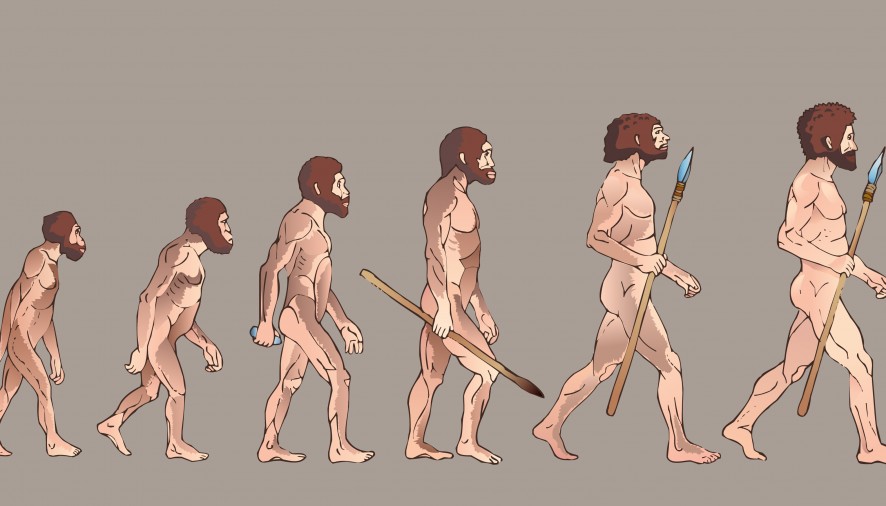Could living in and beside water have been a key factor in human evolution and the adaptions that occurred from our ancestors? This quandary has formed the basis of a 2-part documentary programme, recently broadcast on BBC Radio 4. The Waterside Ape, presented by naturalist, national treasure, and Britain’s favourite surrogate grandfather – Sir David Attenborough – considers a theory of human evolution which has gained ground over the last 50 years.
In direct contradiction with established theory – that humans evolved on the African savannah from species of ape that, having come down from the trees to hunt and gather, learned to walk up-right – the Waterside Ape Theory offers an alternative explanation. Namely, that we walk upright as an adaptation to swimming and wading, that we have lost our fur to streamline our path through the water, and that the extra subcutaneous fat found uniquely in humans is a result of our ancestors being a semi-aquatic species.
While completely new to the theory myself, it has had its supporters and opponents from as far back as the mid-20th Century; chief advocates being marine biologist Alister Hardy and the feminist – and Bafta winning playwright – Elaine Morgan. In 1972, annoyed by theories that man was a hunter-gatherer, views which Morgan believed relegated females to a minor footnote, she built on Hardy’s ideas to write The Descent of Woman. This depicted humans originating from aquatic apes, while systematically belittling the “tarzanists” who supported the popular hunter-gatherer model. This was followed with The Aquatic Ape: A Theory of Human Evolution, and then a further four more books, in which Morgan argued that human ancestry is tied to living on shore lines.
Attenborough guides the listener through the evidence and back story with the semi-detached wonder that has made him the first, and last, word in nature doc presenting for decades. His evidence does indeed seem striking. The ability for humans to free dive long into old age, the discovery of tiny bones in the inner ears of fossils indicating a propensity to water life, and even that a human’s ear wax is the same as that of a new born seal all aid in pushing the theory. By the end of 80 minutes you may just find yourself convinced of our watery idealistic past. I certainly was.
That was until I did some further research, stumbling across an article co-authored by Professor Alice Roberts, which poured cold water on the theory as overly romantic wishful thinking. Working alongside Mark Maslin (Professor of Paleoclimatology, UCL), the pair pour scorn on the Waterside Ape theory. Pointing out its inherent flaws – suggesting it is little more than a fish story – they suggest that the adaptations occurred from shoreline living can be rationalised through other simpler theories.
For example, hairlessness is only a feature of mammals that live in water all of the time; indeed, semi-aquatic mammals, like otters, can instead be furry. Roberts and Maslin suggest that the ability to adapt to heat loss more readily provides a better answer to a human’s lack of body hair. Our capacity to stand upright is also branded a misleading argument. Apes can (and do) stand upright, either as an act of aggression or to reach high fruit on branches. If pre-hominids could already stand, then the Waterside Ape theory is an unnecessary explanation to human bipedalism.
And so it continues; Subcutaneous fat? Sexual selection offers a simpler solution. Breath-control? More likely related to speech. Even a human’s ability to swim well has been rubbished, with Roberts and Maslin pointing out that our skin actually leaks – you’ll notice this yourself from the pruning of your fingers following a nice long bath.
Fossil records also show that our ancestors lived inland, in wooded environments, likely evolving to cope with the diverse landscape. It certainly appears that the idea of our ancestry being nautically inclined seems at risk – if not dead in the water, then at least waving in distress. The Waterside Ape Theory does however give rise to a valuable scientific lesson; that theories without convincing evidence, even when delivered by respectable names like Attenborough, should be questioned and not taken as gospel. Wanting something to be true doesn’t necessarily make it true.
Leo Kindred
(Image courtesy of Shutterstock)

